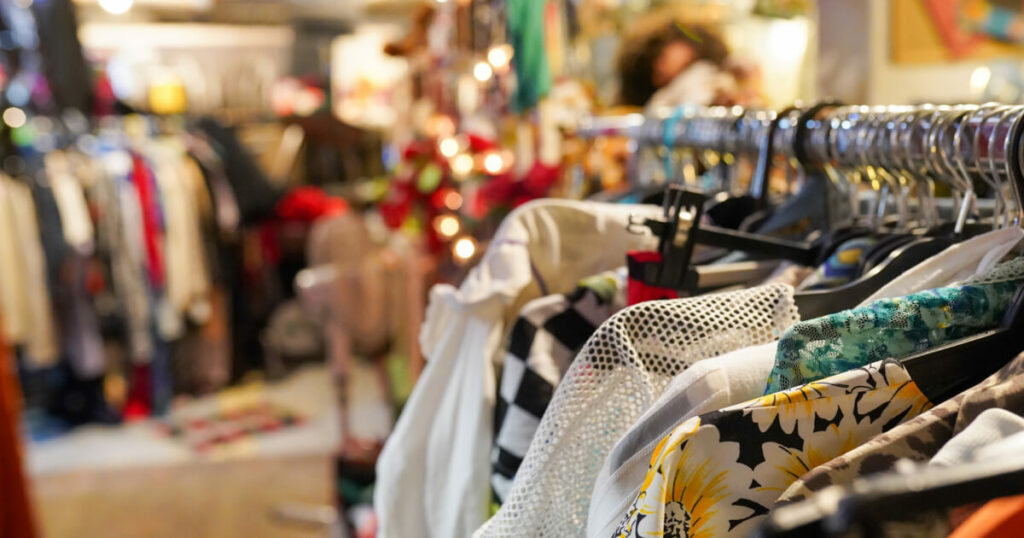Bin stores are becoming increasingly popular, offering a treasure hunt experience where shoppers search for great items at unbelievable prices. A bin store is a type of retailer that sells a wide variety of merchandise at significantly discounted prices. The products typically include overstock, returned items, discontinued products, and goods with minor damages or packaging issues. These items are sourced from various retailers, manufacturers, and liquidation sources, providing customers with a diverse selection of discounted goods.
Essentially, bin stores obtain bulk pallets or truckloads of surplus inventory, customer returns, and closeout items from major retailers such as Amazon, Walmart, and Target. These items are then organized and presented in large bins or on shelves throughout the store, typically without their original packaging. Shoppers can sift through the bins to discover deals on various products, including electronics, clothing, toys, home goods, beauty products, and more. Bin Stores have become an integrated part of retailers’ reverse logistics and returns management functions.
Why Are Bin Stores Popular?
Incredible Bargains
Bin stores offer deeply discounted prices, sometimes up to 90% off retail prices. This makes them highly attractive to bargain hunters and budget-conscious shoppers looking for substantial savings on a wide range of products.
Treasure Hunt Experience
Shopping at bin stores is not just about finding great deals, it’s a treasure hunt. Customers never know what they might find, adding an element of excitement and surprise to the shopping experience. This unpredictability makes each visit unique and enjoyable, creating a sense of engagement and thrill.
Sustainability
Bin stores significantly reduce waste by giving a second life to products that might otherwise end up in landfills. This appeals to environmentally conscious consumers eager to support sustainable shopping practices and reduce their environmental footprint.
Variety of Products
Bin stores offer diverse products, from everyday essentials to unique and hard-to-find items. This broad selection caters to consumer interests and needs, ensuring something for everyone.
Cost-Effective for Retailers
For retailers, bin stores provide a cost-effective solution to offload excess inventory. By selling overstock inventory, returned items, and discontinued products through bin stores, retailers can reduce losses associated with unsold merchandise and free up valuable warehouse space.
Community Engagement

Bin stores often foster a sense of community among shoppers, who share tips and finds with one another. This communal aspect enhances the shopping experience and builds a loyal customer base, making shoppers feel connected and part of a larger network.
What types of Products Do Bin Stores Carry?
Bin stores provide an extensive assortment of products, encompassing daily household essentials to electronics, clothing, toys, and rare finds. Common items you might discover in bin stores include electronics like wireless speakers, smart thermostats, blenders, and other small gadgets; clothing such as casual wear, footwear, and fashion accessories from multiple brands; and home goods including bed linens, kitchenware, decorative pieces, garden tools, and light fixtures. Customers can also find toys and games like puzzles, premium skincare and grooming products, and unique or hard-to-find items such as vintage collectibles and specialty hobby kits.
Bin stores differ from traditional retail stores in several ways: they source their inventory from overstock, customer returns, and discontinued items from major retailers like Amazon and Walmart, whereas traditional stores sell new merchandise directly from manufacturers or distributors. Bin stores employ a unique descending pricing model, with prices dropping daily until all merchandise is sold.
For instance, a product might start at around $8 and decrease to $0.50 by the end of the week. This model ensures that all items are sold, even those with low residual value, unlike the fixed pricing of traditional stores. The shopping experience at bin stores involves rummaging through large bins or piles to find bargains, creating a “treasure hunt” atmosphere, in contrast to the neatly displayed merchandise in traditional stores.
Additionally, bin stores may offer new, open-box, or gently used products, while traditional stores sell only brand-new items. Finally, unlike retail stores specializing in specific product categories, bin stores provide a wide and ever-changing variety of merchandise, from electronics and clothing to home goods and toys.
Why Do Bin Stores Need to Be a Part of Your Recommerce Strategy?
Handling customer returns is a constant challenge involving logistics, minimizing losses, and being environmentally responsible. That’s where bin stores play a crucial role in the retail ecosystem. Bin stores provide the perfect outlet for selling customer returns because:
Handling Low-Value Returns
Not all returns are the same. Many items returned to retailers have low residual value, making it impractical for retailers to restock or sell them through traditional channels. Bin stores specialize in purchasing these low-value products, offering a solution for retailers to clear out inventory that would otherwise be expensive to manage.
Reducing Losses and Recouping Costs

Dealing with returns is a big challenge for retailers. They not only have to manage the logistics of processing returns but also suffer losses when the value of opened goods decreases. That’s where bin stores come in. These stores help retailers by providing a way to sell returned items at heavily discounted prices. This helps retailers recover some of the costs associated with returns and reduces their overall losses.
Promoting Environmental Sustainability
In a world grappling with environmental concerns, the role of bin stores becomes even more significant. By reselling returned and unsold inventory, bin stores prevent these products from ending up in landfills, thus contributing to environmental sustainability. It’s a win-win situation – retailers reduce waste, and customers can access discounted goods while being environmentally conscious.
Streamlining Reverse Logistics
Outsourcing the handling and resale of returns to bin stores can streamline the reverse logistics process for retailers. By offloading this task, retailers can focus on their core operations while reducing associated costs. Bin stores provide a convenient and efficient solution for retailers looking to manage their returns effectively.
Catering to Bargain Hunters
Bin stores are not just about managing returns; they also cater to a growing segment of budget-conscious shoppers who relish the thrill of finding great deals. The treasure hunt experience offered by bin stores adds an element of excitement to the shopping process, attracting bargain hunters looking for discounted merchandise.
A Scalable Solution for the Future
With the rise of e-commerce and the accompanying surge in return rates, the demand for bin stores is expected to grow. These establishments provide a scalable solution for retailers looking to manage increasing returns volumes efficiently. While they may not entirely solve the problem of excessive returns, bin stores offer a mutually beneficial arrangement for retailers and consumers.
Want to know the value of your inventory?
Conclusion
After analyzing the situation, it has become evident that the collaboration between retailers and bin stores provides a strong solution to the many challenges of managing customer returns. By utilizing the specialized services of bin stores, retailers can find a way to effectively handle the complexities of return logistics while minimizing losses and promoting environmental sustainability. Bin stores offer a crucial platform for retailers to sell returned merchandise at discounted prices, enabling them to recover costs and reduce waste.
As e-commerce continues to influence consumer behavior and raise return rates, the importance of bin stores as a scalable solution for managing returns is likely to grow. Ultimately, the partnership between retailers and bin stores improves their financial performance and demonstrates a shared commitment to responsible and sustainable business practices. For example, Overstock Trader assists retailers in improving the efficiency of this partnership by bridging gaps in their reverse logistics process.
FAQs
What are bin stores?
Bin stores offer a unique shopping experience by selling overstocked, returned, or surplus merchandise at significantly discounted prices. Items are usually displayed in large bins or on tables, and the prices often decrease over time to encourage quick turnover. This treasure-hunt atmosphere attracts bargain hunters looking for great deals.
How do bin stores benefit from customer returns?
Bin stores benefit from customer returns by purchasing these products at a significantly reduced retailer cost. This enables them to sell items at deeply discounted prices, which attracts a steady stream of bargain-hunting customers.
Why are bin stores becoming popular among retailers?
Bin stores are becoming more popular among retailers because they offer a cost-effective and efficient solution for managing returned items and excess inventory. By collaborating with bin stores, retailers can avoid the costs associated with storing and disposing of unsold products while recouping some of their losses.
What types of products can be found in bin stores?
Bin stores stock various products, such as electronics, clothing, home goods, toys, etc. Their inventory is known for its unpredictability, with items changing frequently. This dynamic selection creates a unique and exciting shopping experience for customers.
How do prices work in bin stores?
Prices in bin stores often follow a sliding scale approach. Initially, items may be priced higher when first displayed, with prices gradually decreasing each day until the product is sold. This strategy encourages swift inventory turnover, ensuring customers are incentivized to purchase items sooner rather than later.
Can retailers partner directly with bin stores?
Yes, Retailers have the opportunity to form partnerships directly with bin stores. This collaboration allows retailers to consistently supply bin stores with returned and overstocked merchandise, creating a mutually advantageous relationship. Retailers benefit by efficiently managing excess inventory, while bin stores gain a reliable source of discounted products to offer their customers.

